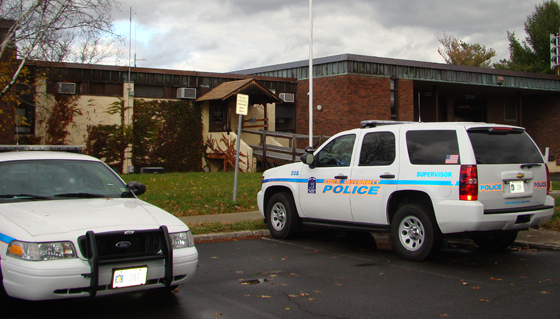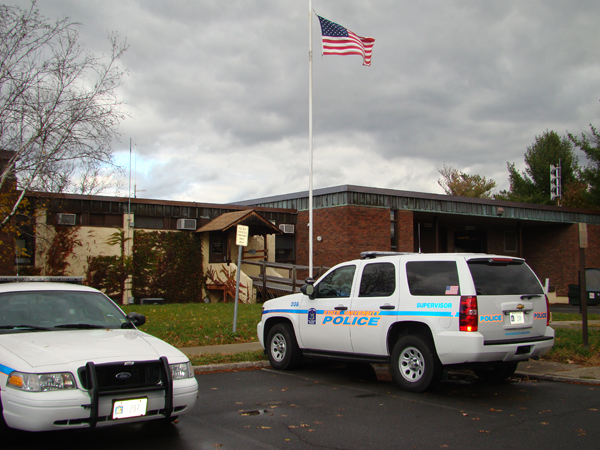

Senate Chair Terrell Coakley and other students have been looking into methods to improve student-police relations at SUNY New Paltz.
Coakley and other members of the Student Association (SA) executive board (E-board) developed the idea after attending the State University of New York Assembly where they met other SUNY school representatives. After meeting with representatives from Purchase College, the E-board believed relations between students and police were “a lot better” than relations at SUNY New Paltz.
One way Coakley said he hopes to improve the current relationship between students and police on campus is to organize a conversation between SUNY New Paltz University Police Chief Ray Bryant and the Purchase Police Chief Joseph Olenik.
“I feel like it would be great to get another perspective of a university that seems to have better communication between people on campus and those put in the power to protect and serve,” Coakley said.
SA Vice President of Academic Affairs and Governance Caitlin Ryan, who attended the SUNY Assembly, said that Purchase Student President Nico Marceca has been making
progress in improving relations.
“[Marceca] set up meetings between the chief of police of Purchase and gave us advice on how to improve relationships with our department,” Ryan said.
New Paltz Police Officer David Melideo, who served as an officer at Purchase College and has been in law enforcement for 25 years, said he did not see many problems between students and police on campus. However, he said he thought a meeting or conversation between the two chiefs was “an interesting idea.”
Coakley said students at Purchase have some say in who is hired to the police staff, which is an example of the relationship the Purchase student community has with its officers.
Matt Zankowsky, a first-year sculpture major at Purchase, said the average relationship between police and students was “non-contact” oriented.
“The police don’t go out of their way to interact with the general student body,” Zankowsky said. “They are pretty lenient about small things.”
Melideo said he believes New Paltz and Purchase have similarities, but have differences regarding criminality. The officer said while the student population is similar at both schools, Purchase’s crime comes from off-campus visitors. He also said Purchase’s proximity to New York City affects its crime rate.
However, Zankowsky said the New Paltz student body may prefer what he described to be a more relaxed attitude of the cops on his campus.
“New Paltz students might like not getting hassled as much,” he said.
Ryan said organizing a potential meeting between Bryant and Olenik would be “a different tactic” for examining student-police relations in New Paltz, and the potential dialogue between the police chiefs would be helpful.
According to Ryan, important issues surrounding student-police relations have been discussed for a long time.
“There are officers who are willing to make strides while there are others who aren’t,” Ryan said. “Those who aren’t give the rest of the department a bad reputation.”
Melideo said that while he has never had problems with students, he believes that younger cops are more aggressive and are actively looking for criminal conduct – something he believes is visible across law enforcement.
“Realistically, everyone tries to do a good job and go out of our way to assist the student body,” Melideo said.
Melideo added that most complaints the UPD receives are not from students, but from other members of the community or town.
“I would say that I haven’t had a complaint against me by a student in a long time, if ever really,” said Melideo.
Though the meeting between the chief has yet to be scheduled, SA is hosting a “Know Your Rights” program in conjunction with Students for Sensible Drug Policy, the National Organization for the Reform of Marijuana Laws and Alpha Phi Alpha on Dec. 1 in Student Union 100. At the event, a film will be shown that is meant to show students “basic rules to remember in police situations” and a lawyer will be available to answer questions.
